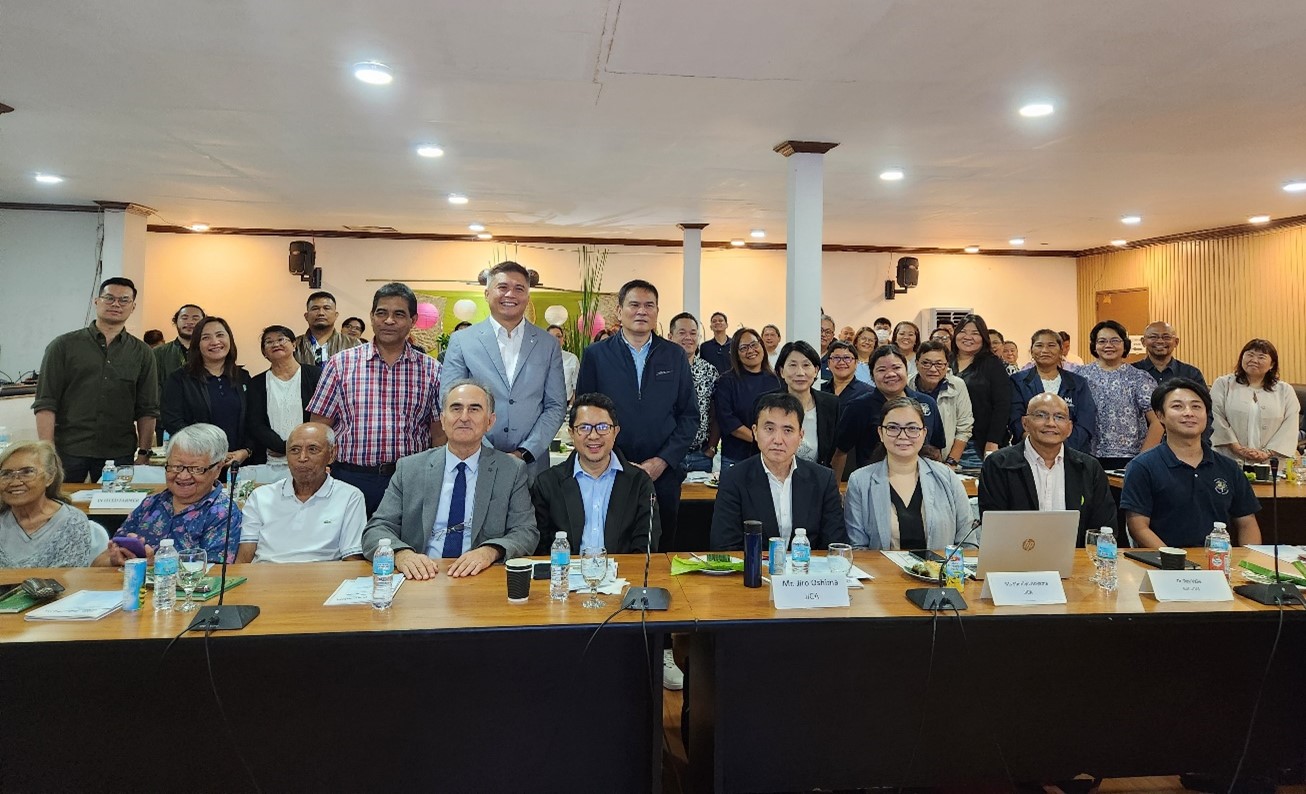JPN-PHL joint research team changes the game in high value crop production
2024.10.09
Local and international experts join forces to push for a more efficient production of banana and cacao in the Philippines.
The Japan International Cooperation Agency (JICA), in cooperation with Central Luzon State University (CLSU), Department of Agriculture-Bureau of Plant Industry (DA-BPI), the Japan Science and Technology (JST), and Japan’s Tamagawa University, held the 1st International Stakeholders’ Discussion on Banana and Cacao Pests and Diseases Management in the country on September 27, 2024.
The forum forms part of the Project for the Development of Novel Disease Management Systems for Banana and Cacao (BaCaDM) under the Science and Technology Research Partnership for Sustainable Development (SATREPS) program supported by JICA. Since 2021, the project has been spearheading research and field surveys to identify causes of disease outbreak in banana and cacao farms in the country. Ultimately, it aims to develop a more sustainable production of said crops by establishing a new technological system that controls and manages the novel diseases affecting them.
The event gathered researchers, industry practitioners, international experts, and government partners to discuss and better understand the state of the banana and cacao plant industries in the country. It also facilitated the stakeholders to identify further research and synergy opportunities among various sectors, which is important to ensure that all efforts are harmonized.
Much emphasis is given to banana and cacao as these are among the high value crops in the Philippines. Per the Philippine Banana Industry Roadmap (2021-2025), banana is important not just as a fruit crop commodity, but also as a crucial component of food security among Filipino families, and on a larger scale, of the country’s economic development. Moreover, the roadmap says that pest and disease management is crucial to “improve the productivity and competitiveness of the industry”, an objective that the BaCaDM shares.
As for cacao, the steadily growing increase in its production over the past few years necessitates an improved system that will make the Philippines at par with other cacao growers in the world. The Philippine government seeks to be globally competitive in this respect by developing a strong and sustainable cacao industry.
During the forum, Dr. WATANABE Kyoko from Japan’s Tamagawa University reported that based on initial research findings, the effectiveness of anaerobic soil disinfestation using low concentrate ethanol sprayed to infected soil was confirmed for both banana and cacao. This method substantially reduces the waiting time for farmers to replant as it would only take one month to sanitize the soil in contrast to other practices that require 12-14 months.
In his message, JICA Philippines Senior Representative OSHIMA Jiro assured everyone that JICA is committed to see this project through and to work closely with partners in ensuring the project’s success. “Banana and cacao industries are still hounded by challenges such as tight market competition from other producing countries, and the need to continuously contain the spread of outbreak in the country. JICA assures you that we will be with you all the way as we believe supporting this endeavor would mean creating a quality and sustainable food production for everyone,” OSHIMA said.

scroll